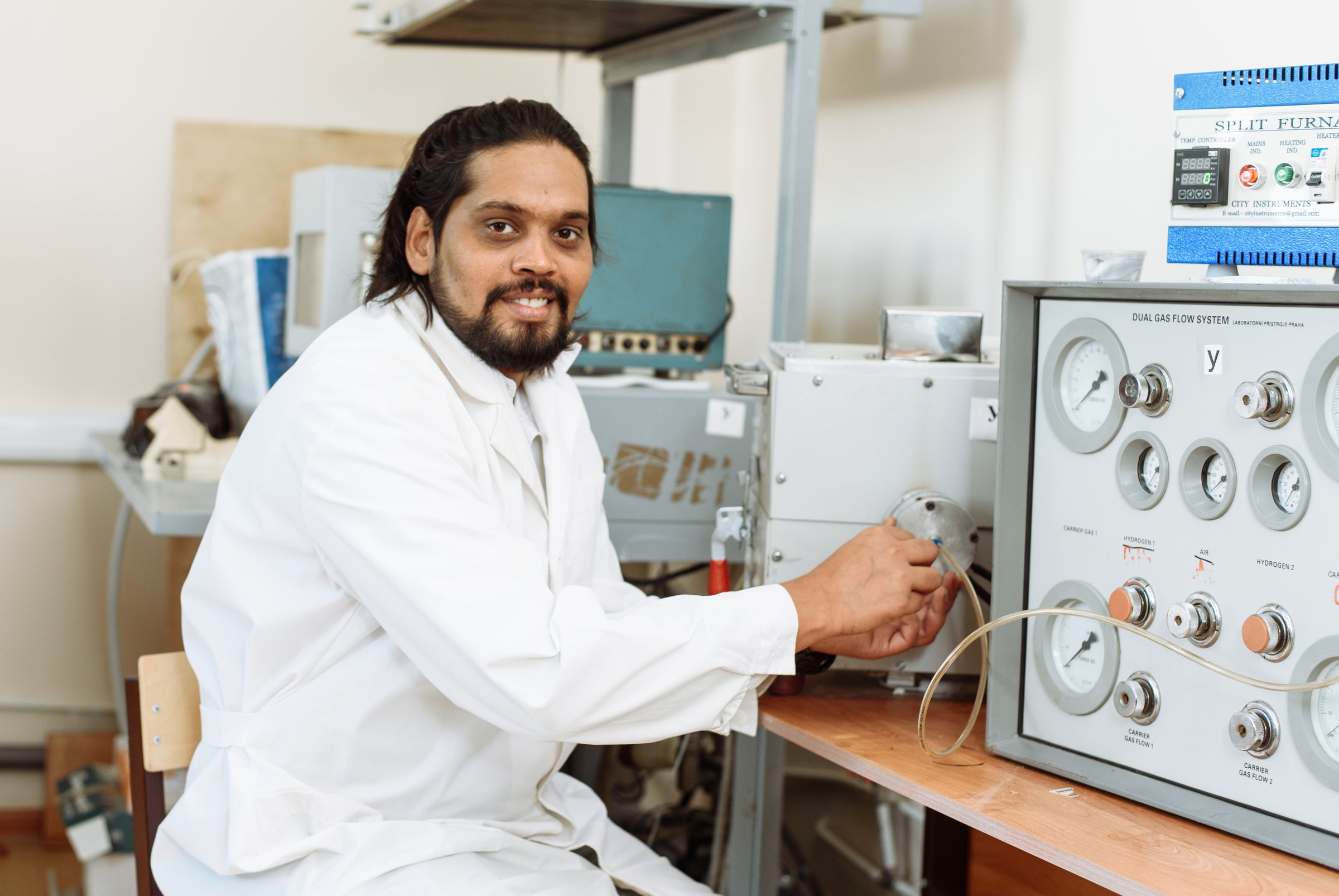Young scientists of Samara National Research University (the University participates in the National Project “Science and Universities”) have produced prototypes of thin nanostructured semiconductor films that can be used to create highly sensitive photodetectors for monitoring systems, sensors for fiber-optic communication lines and medical spectroscopy. In future, the nanomaterial can also be used for producing flexible solar panels that can be fixed in the form of thin film directly on clothes, backpacks, tents and other things. This project won the competition of the RSF Presidential Program. In the development, the research results obtained within the framework of collaboration of scientists from Samara University with scientists from Saudi Arabia and India were used. Prototypes are currently being tested.

“The key goal of our project is to create fast, highly sensitive and flexible infrared radiation detectors based on titanium disulfide nanostructures. Infrared photodetectors are the most important part of devices used in monitoring systems, medical spectroscopy, fiber-optic communication lines, robotics. It is interesting to note that photodetectors based on titanium disulfide can be used in harsh climatic conditions in the ambient temperature range from -180 ℃ to +180 ℃. Thickness of titanium disulfide nanostructures can be literally several atoms, which makes this nanomaterial almost transparent. In future, on the base of synthesized nanomaterials, it will also be possible to create cheaper, lighter and more flexible, like fabric, solar cells to be fixed in the form of a translucent film, for example, on clothes, on any objects with their complex, changeable surface. It will even be possible to develop special fabric producing electricity for future “smart” clothes with built-in electronic sensors or gadgets”, said Nishant Tripati, Associate Professor of the Department of Nanoengineering at Samara University, the project manager.
According to the scientist, in modern optoelectronic devices, flexible design of infrared photodetectors that are sensitive in the widest possible wavelength range is in great demand. This is due, among other things, to the massive use of various “smart” devices in everyday life. However, most of the semiconductor materials currently used in industry, for example, such as silicon, have a number of disadvantages: photodetectors based on it are able to effectively detect a signal only in narrow part of the spectrum. Moreover, these detectors, as a rule, are structurally rigid and have relatively slow response to the received signal, which is critical for modern automatic motion sensors that require rapid response.
According to preliminary studies, the flexible nanomaterial developed at the University, will be able to efficiently detect radiation in the wide spectral range. For maximizing sensitivity of the photodetector and its detection ability, as well as minimizing its response and recovery time, scientists added gold and silver nanoparticles to the material: according to the developers, this will not significantly affect the final cost of future detectors, it will be considerably lower than that of analogues used in this field at present.
“Production cost of our photodetectors will certainly be lower than production cost of traditional photodetectors. The synthesized nanomaterials will be able to absorb solar radiation in the wide range”, emphasized Nishant Tripathi.
Currently, in framework of the project at Samara University, prototypes of flexible highly sensitive photodetectors have been manufactured and are being researched.
About the project
The project entitled “Development of the ultrafast, highly sensitive, flexible infrared radiation detector for use in the wide range of the IR spectrum” won the competition of the RSF (Russian Science Foundation) Presidential Program in the area “Conducting initiative research by young scientists”. Earlier, the authors of the project published their scientific article on development of the ultra-sensitive broadband photodetector based on TiS2 nanosheets. The article includes the results obtained in course of collaboration of scientists of Samara University with their colleagues from Saudi Arabia and India.
For reference
The RSF Presidential Program for research projects was developed by the RSF in 2017 on behalf of Russian President Vladimir Putin. Its main tasks are to support long-term projects of leading scientists and create career paths for promising young researchers.
Photo: Anastasiya Korotkova


